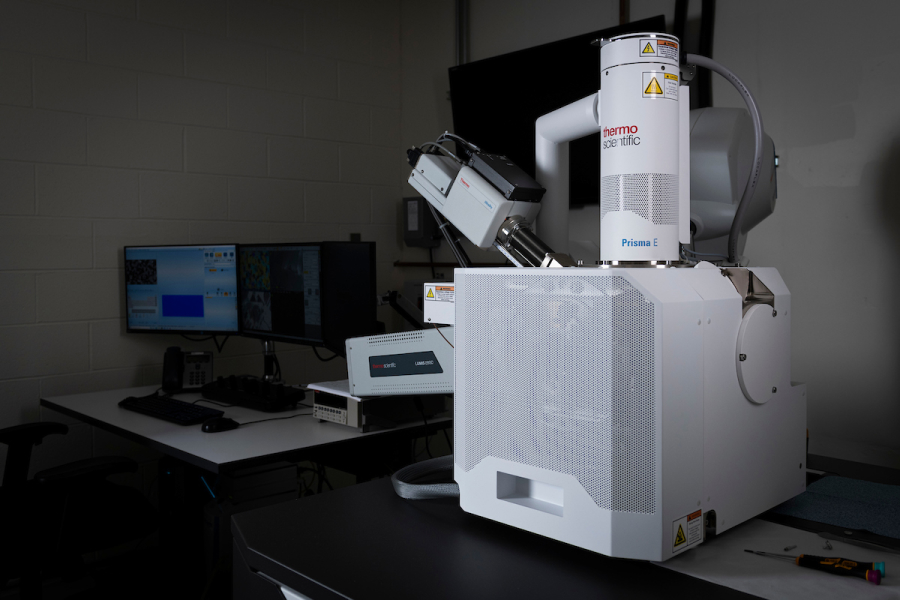Master's Degree in Metallurgical Engineering
Earn a Master's Degree in Metallurgical Engineering
Shape the future with a master's degree in metallurgical engineering from Missouri S&T. Join our program to become a leader in designing and producing high-performance materials, utilizing recycled metals, and making a positive impact on society through innovation and excellence. Start your journey towards a rewarding career and be part of a community dedicated to creating a better world.
Want to Know More?
Get info on our program, scholarships, how to visit campus, admissions and more. Take the next step in solving for tomorrow!
Degree Information
What Alumni Say About S&T

When I was applying for graduate schools in the U.S., my search for a program was focused on metallurgy and this proved challenging as only a handful of institutions offered a degree specialized in metallurgy. Be that as it may, I received an acceptance letter from a top-tier school in the field of material sciences, formerly known as Missouri School of Mines and Metallurgy now expanded as Missouri University of Science and Technology. I had the opportunity to learn from renowned professors and engage in cutting-edge research projects. The program offered a curriculum that had a blend of theoretical coursework and practical laboratory which made me gain hands-on experience in the areas of metal casting, mechanical testing and material characterization. It was indeed a transformative experience that laid a solid foundation for my career in the field of steel metallurgy.
— Madhuri V., Nucor
Research in Metallurgical Engineering

Explore Research Fields
Your Career in Metallurgical Engineering
Imagine yourself as a Metallurgical Engineer, where you could be at the heart of the iron and steelmaking industry. Or perhaps you see yourself in the burgeoning field of 3D printing of metals and alloys. You could be part of a team that's ensuring the safe and efficient operation of nuclear power plants, or working with materials that can withstand the extreme conditions inside a reactor, helping to provide clean, reliable energy for millions of people. These are just a few of the exciting career paths that await you as a graduate of Missouri S&T's metallurgical engineering program.
Career Fields
- Iron and Steelmaking
- Sustainable Manufacturing
- Metal Production
- Additive Manufacturing
- Sustainable Processing of Critical Minerals
Common Hiring Companies
- ArcelorMittal
- Army Research Lab
- General Motors
- Nucor Steel
- Rio Tinto
 - Copy 1.jpg)

Follow Materials Science and Engineering